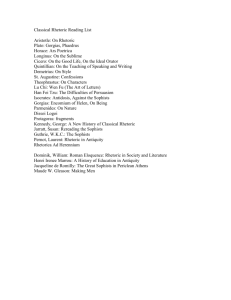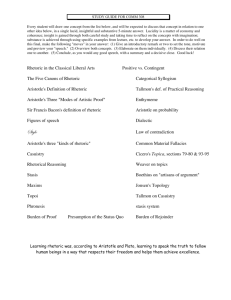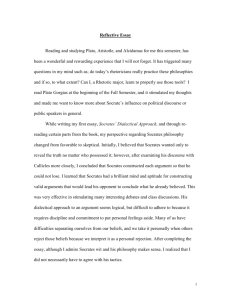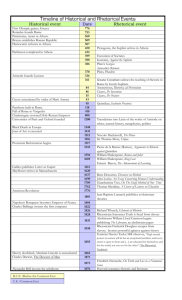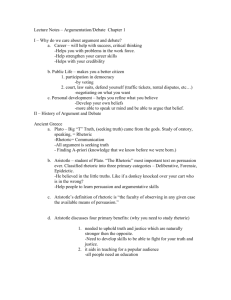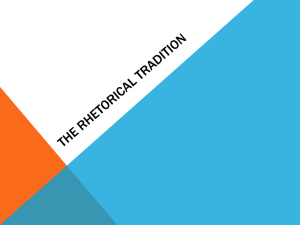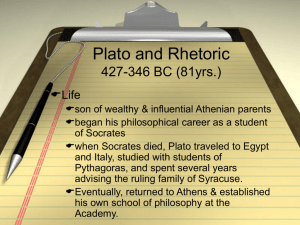BoxingPlatothruchapter1
advertisement
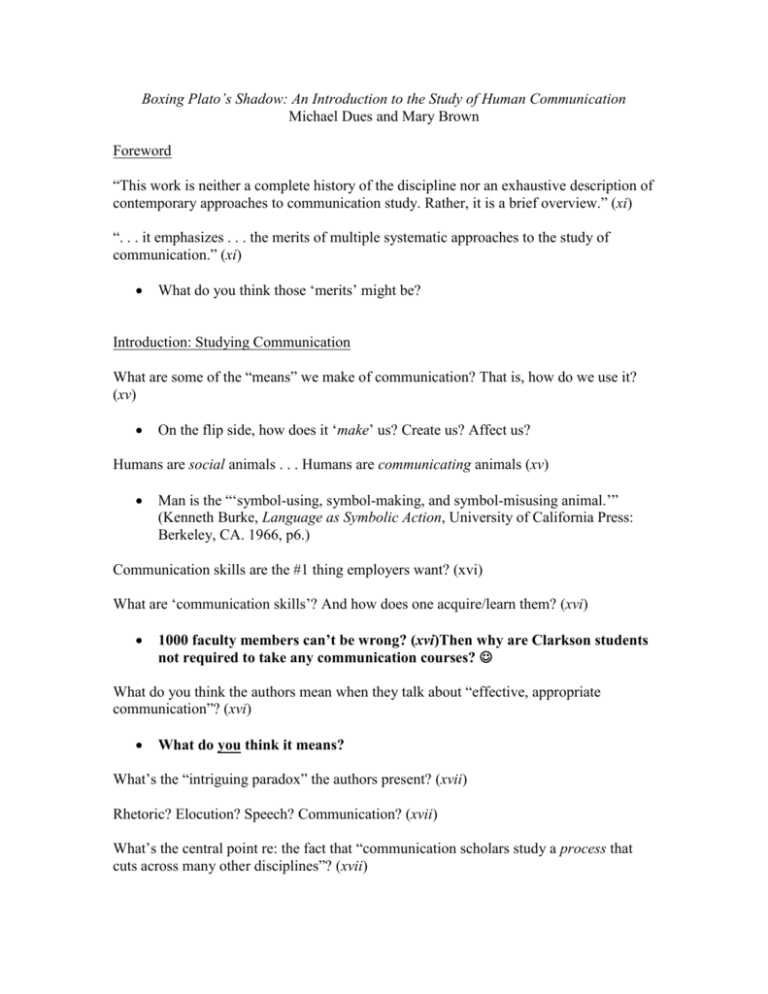
Boxing Plato’s Shadow: An Introduction to the Study of Human Communication Michael Dues and Mary Brown Foreword “This work is neither a complete history of the discipline nor an exhaustive description of contemporary approaches to communication study. Rather, it is a brief overview.” (xi) “. . . it emphasizes . . . the merits of multiple systematic approaches to the study of communication.” (xi) What do you think those ‘merits’ might be? Introduction: Studying Communication What are some of the “means” we make of communication? That is, how do we use it? (xv) On the flip side, how does it ‘make’ us? Create us? Affect us? Humans are social animals . . . Humans are communicating animals (xv) Man is the “‘symbol-using, symbol-making, and symbol-misusing animal.’” (Kenneth Burke, Language as Symbolic Action, University of California Press: Berkeley, CA. 1966, p6.) Communication skills are the #1 thing employers want? (xvi) What are ‘communication skills’? And how does one acquire/learn them? (xvi) 1000 faculty members can’t be wrong? (xvi)Then why are Clarkson students not required to take any communication courses? What do you think the authors mean when they talk about “effective, appropriate communication”? (xvi) What do you think it means? What’s the “intriguing paradox” the authors present? (xvii) Rhetoric? Elocution? Speech? Communication? (xvii) What’s the central point re: the fact that “communication scholars study a process that cuts across many other disciplines”? (xvii) “Because it is a ubiquitous, ongoing process that is integral to human interaction, communication is difficult to define in simple terms separate from the subject matter of other disciplines.” (xviii) - Remember this when we get to Plato! Deception? Misuse? Ethics? (xviii) Sophists? Who were the sophists? (xix) Chapter 1: The Beginning of Communication Study What ‘system’ was invented by the ancient Greeks as an alternative to fighting among themselves? (1) Do you think it’s a good thing that people who are more skilled at speaking have an advantage in, for example, judicial cases? (2) What did the Sophists believe that “offended some older, more traditional and elitist Athenians”? (3) What does Corax have to do with probability? (3) What important idea did Protagoras contribute? (3) Gorgias – “oratory that bordered on poetry” (3-4) And what is “kairos”? (4) Hippias vs. Socrates – what did they disagree about? (4) Isocrates – an important name! (4) What other notions did the sophists help advance? (4) So why are words like sophist and sophistry used with “disdain”? (4) Plato’s Shadow (5+) Describe Socrates’ attitude towards the Sophists’ ideas, in particular the notion of more democratic governance. (5+) “Truth” w/ capital T (6) Versus what? What’s the “central point” of The Republic, according to our authors? (6) How did Plato view the sophists? (6) What “place” did Plato assign rhetoric among “the arts to be studied”? (6) “The disputed issue, then, is this: Does rhetoric have a legitimate part to play in the discovery of truth, or is rhetoric only useful to help explain truth after it has been discovered?” (7) What might Mitchell say about this? Smith? Plato’s dialogues – main character: Socrates (7) Aristotle’s Resolution (7+) Aristotle invented formal logic – suitable for certain knowledge (8) But he also understood that “in many areas of life, certainty is not attainable. In these areas, humans can at best ascertain only ‘probable’ truth.” (8) Such as? And in those areas, he understood that persuasion and advocacy were “valid decisionmaking tools.” (8) Do you agree? “Agreeing with Protagoras, he reasoned that, on matters for which certainty cannot be reached, advocacy and debate are the best available means of discovering what is most probably true. . . .” (8) What does that say about rhetoric’s role? About who should make decisions? About how decisions should be made? Counterpoint: Plato thought rhetoric bad because it could promote falsehood over truth (8-9) Aristotle felt that it could promote either – and thus it was the “duty of honorable citizens to arm themselves with knowledge and skill in rhetoric in order to defend truth” (9) Aristotle’s definition of rhetoric: “the art of discovering all the available means of persuasion in a given situation” (9) Understand the difference between syllogisms and enthymemes? Dialectic – logical syllogisms (9) Major premise: All humans are mortal. Minor premise: Socrates is human. Conclusion: Socrates is mortal Rhetoric – enthymemes (9) Major Premise: Those who study rhetoric speak eloquently. Minor Premise: Susan studies rhetoric. Conclusion: Susan speaks eloquently. Key principles articulated by Aristotle in The Rhetoric: (9) Communication is “purposive” – intention of affecting or influencing others (9) Genres – forensic (judicial, courts); deliberative (assembly); epideictic (ceremonial / praise or blame) (9) Persuasive appeals – ethos (source credibility); logos (logical support, argument); pathos (emotional) (10) Five ‘canons’ of rhetoric: invention; disposition; style; memory; delivery (10) Coming attraction! - Plato’s Gorgias – a negative portrayal of rhetoric (11) Boxing Plato’s Shadow (11+) Why do the authors refer to a Woody Guthrie song? (11) Shadow boxing? Implications? (12) Is rhetoric only one aspect of communication? Or does it depend on how you define it? (12)
